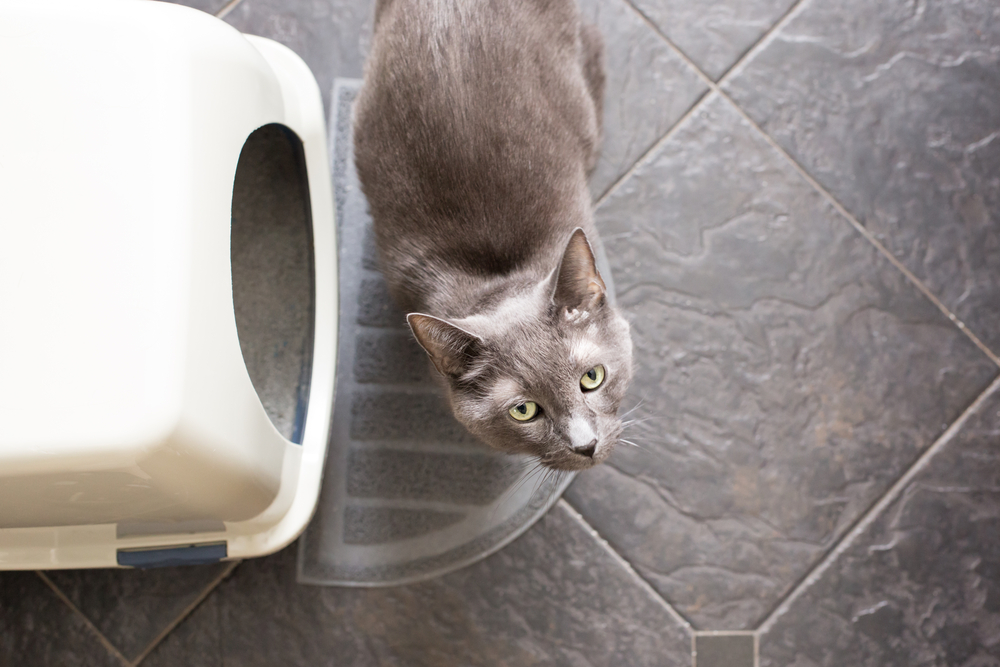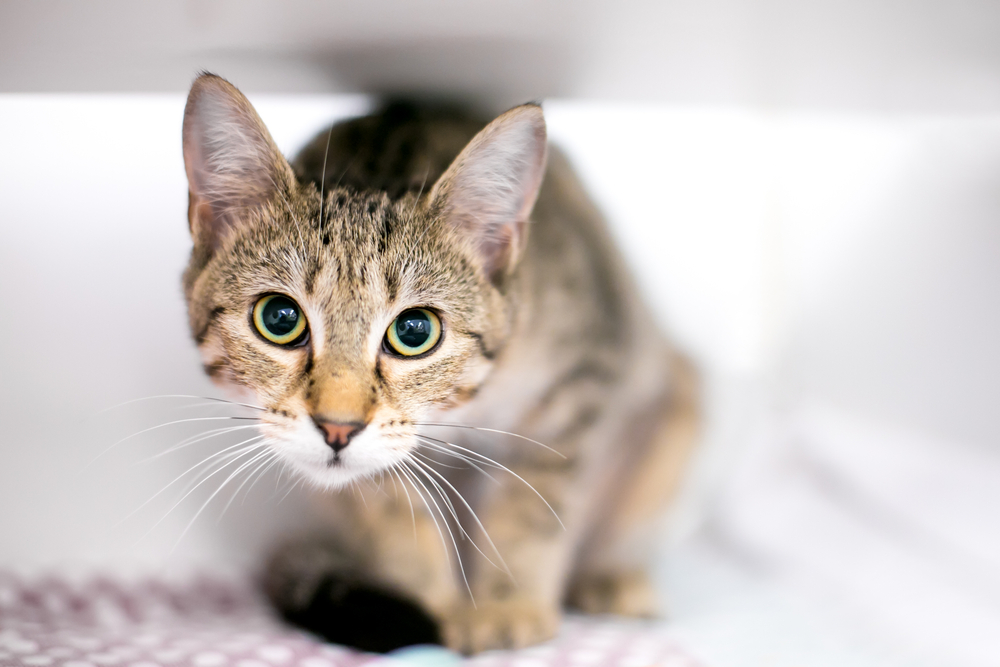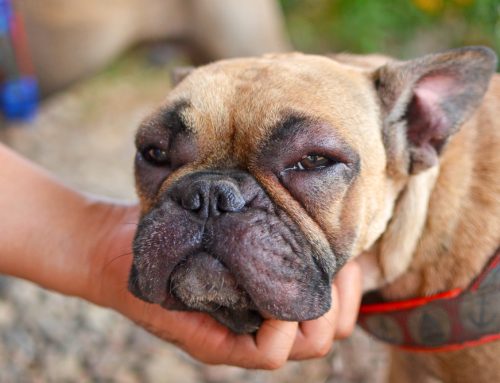Most people don’t think twice about their cat’s out-of-character behavior, because they are naturally curious and unpredictable creatures. However, when these behaviors indicate underlying stress, your cat needs help to feel better. Untreated anxiety can lead to long-term behavior disorders or affect your cat’s physical health. Our All Creatures Animal Hospital team has compiled this overview to help you understand, identify, and correct your cat’s stress.
What causes cat stress?
Cats may seem calm and collected, but small changes in their health, environment, or relationships can easily stress them. Common cat anxiety triggers include:
- Household changes — New or rearranged furniture, construction, seasonal decor, or moving can stress your cat.
- New people or pets — Visitors to your home, college students who move away and return, stray or feral cats on the other side of a window, or a new household pet are major feline stress triggers. Likewise, a strained relationship with an existing household pet can also cause your cat anxiety.
- Boredom — Indoor-only cats have limited opportunities to exercise natural feline behaviors, which can lead to frustration and stress.
- Loud noise or excessive activity — Visitors to your home, parties, construction, or fireworks nearby can frighten your cat.
- Separation from people — Dogs are not the only species to suffer separation anxiety, but your cat will express their concern in a more subtle way.
What are cat stress signs?
Cats express stress in behavioral and physical ways, and this overlap makes stress signs more difficult to recognize. Anxiety may lead to physical illness, and physical illness or pain will add to your cat’s stress. Because cats’ stress and disease are closely interrelated, you should check in with our veterinary team if your feline friend exhibits any of the following anxiety signs:
- Urinating or defecating outside the litter box
- Constipation or diarrhea
- Appetite changes
- Overgrooming and bald spots
- Hiding or neediness
- Excessive vocalization
- Irritability or outright aggression with people or other pets
Hyperthyroidism, kidney disease, urinary tract disorders, hypertension, diabetes, arthritis, and dental disease are common reasons cats develop behavior problems or eating or drinking habit changes, and our All Creature Animal Hospital team must rule out these illnesses before treating your feline friend for behavioral stress, which can also cause your cat to develop disease, including feline lower urinary tract disease (FLUTD), urinary obstruction, skin disease, and chronic vomiting or diarrhea.

How can I help my stressed cat?
If your cat is exhibiting stress signs, schedule an appointment, so our veterinary team can perform a thorough examination. To learn more about your cat’s health status, we may also order the following tests:
- Complete blood count (CBC) and blood chemistry panel
- Urinalysis
- Urine culture
- Abdominal or joint X-rays
- Abdominal ultrasound
If your cat is ill, we’ll focus first on resolving their medical issue that may be contributing to their stress. However, if the problem continues, we can discuss training strategies, household changes, or anti-anxiety medications to help your pet. To help reduce your cat’s anxiety, try these strategies:
- Maintain a predictable daily routine.
- Interact with your cat daily through play, petting, grooming, or other activities they enjoy.
- Provide interactive toys and food puzzles that encourage them to exercise stalking and hunting behaviors.
- Provide multiple scratching surfaces in various areas of your home for your cat to mark their territory.
- Provide vertical space that enables your cat to escape from other pets or people.
- Add more litter boxes in different house areas, and scoop them daily.
- Provide an enclosed outdoor space (i.e., catio) or create a bird-watching window space.
- Cover window glass with a frost product if your cat can see feral or stray animals outside.
Can I prevent my cat’s stress?
Socializing your young kitten is a crucial step to helping them learn to accept new people, pets, and experiences, and becoming more resilient in response to stressful events. Unfortunately, cats are usually past their main kitten socialization period when they are adopted, and do not have an opportunity to participate in a kitten class or other socialization protocol. You can help your adult cat adjust to their environment by following the general stress reduction strategies discussed earlier, and always check in with your veterinarian if your feline friend’s behavior changes, no matter how insignificant.
The first step to easing your cat’s stress is to allow our All Creatures Animal Hospital team perform your feline friend’s physical examination to rule out a medical problem and discuss strategies, supplements, and medications to help calm their anxiety. Schedule a visit with our team if your cat exhibits out-of-character behavior or other illness signs.














Leave A Comment